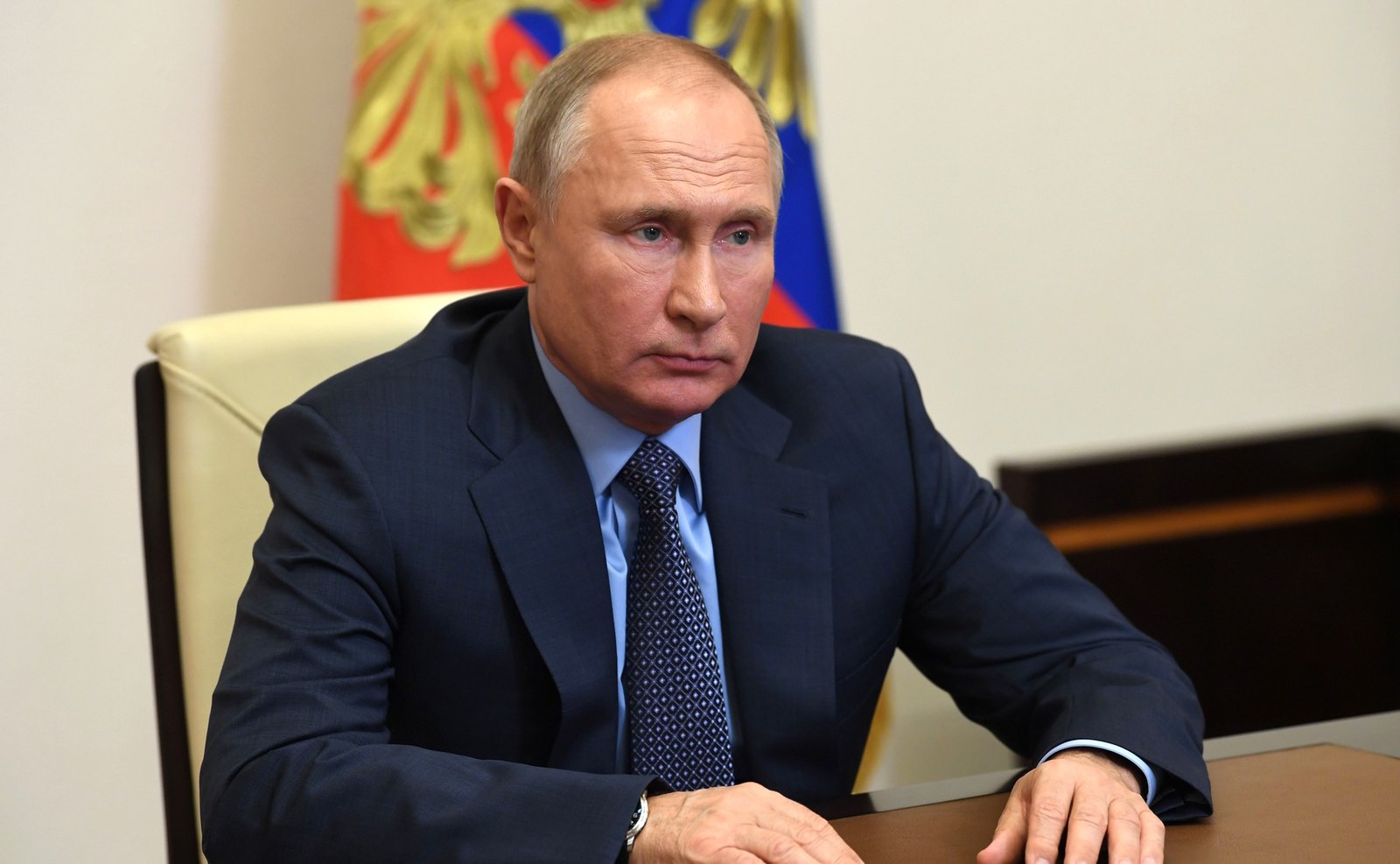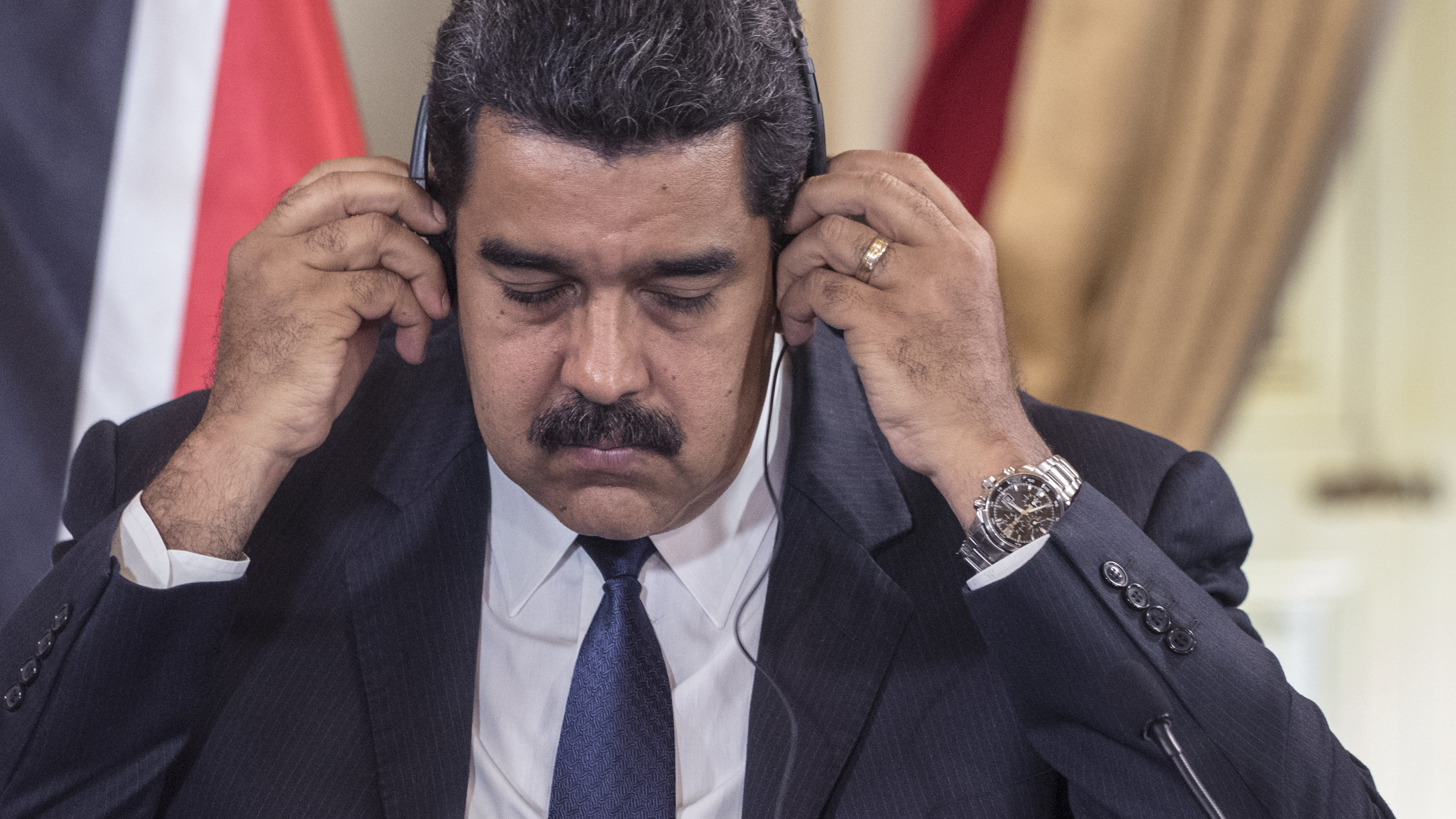Divestment From Russia by Foreign Business Could Increase Pressure on Putin
While Putin made prewar preparations to attempt to sanction-proof the Russian economy, he was not ready for the risk of a mass foreign exodus from the Russian market.

Following Russian President Vladimir Putin’s decision to start a “war of choice” on Ukraine, leading foreign business with multibillion-dollar investments in Russia, including BP, Shell, ExxonMobil, and Norway’s sovereign wealth fund, have announced that they are going to divest or exit operations. Many others, including Apple, McDonald’s, and Starbucks, have begun to suspend operations. Faced by a similarly stark moral dilemma in South Africa during apartheid, many international companies divested and eventually helped compel the government to begin negotiations that ended the system of forced segregation.
While Putin made prewar preparations to attempt to sanction-proof the Russian economy, including by reserving more than $600 billion in foreign currency, he was not ready for the risk of a mass foreign exodus from the Russian market. On March 1, Russian Prime Minister Mikhail Mishustin announced that the government had drafted a decree to prohibit foreign companies from withdrawing their investments. The prime minister cautioned foreign companies against making decisions based on what he termed “political” considerations.
But foreign divestment from Russia has already begun and is rapidly gaining momentum. It is being driven by corporate responsibility to shareholders and employees as well as external stakeholders from governments and civil society. The architect of the movement to divest from South Africa, Reverend Leon Sullivan, framed it as an act of “corporate civil disobedience” against immoral policies, laws and practices. Global business leaders have increasingly embraced the U.N. Guiding Principles on Business and Human Rights, which expand the scope of corporate responsibility.
Foreign companies play a significant role in Russia’s economy. Large-scale divestment from the Russian market will accelerate and multiply the devastating effects of Western governments’ recent acts of economic coercion, including the U.S.ban on importing Russian oil, blocking sanctions on the finance industry, the freeze on the Central Bank of Russia’s hard currency reserves held in foreign banks, the ban on specific Russian banks from using the SWIFT system, and the expanding number of sanctions and range of law enforcement actions against Russian oligarchs.
Foreign divestment strikes at the heart of Putin’s plan to stay in power by providing Russians with economic security while destroying his political opponents. Prior to his full-scale military invasion of Ukraine, Putin came to rely on his ability to attract and steer foreign investment in Russia by the world’s leading multinationals. This included willingness to provide capital investment, state-of-the-art technology and access to global markets. Multinationals, such as BP, Shell, General Electric, ABB, and Siemens, partnered with and equipped Russia’s state-owned “national champions” including Rosneft, Gazprom, Inter RAO, and Russian Railways.
Putin can no longer depend on multinationals to modernize. Given the importance of oil and gas revenues to his ability to stay in power, the divestment by global majors is particularly threatening. On Feb. 27, under pressure from the U.K. government, the British oil and gas giant BP announced that it would divest its 19.75 percent, $25 billion stake in Rosneft. On Feb. 28, Shell announced that it would divest from joint ventures with Gazprom, including the Sakhalin-2 natural gas and Nord Stream 2 pipeline projects. On March 8, Shell took a further step, announcing that it would cease buying Russian oil on global spot markets. On March 1, ExxonMobil announced that it was exiting its operation at Sakhalin-1 valued at $4 billion.
The world’s sovereign wealth funds (SWFs) are also planning to divest, further limiting Russia’s ability to access the capital required to modernize infrastructure, improve public health and diversify local manufacturing. On Feb. 27, Norway’s Norges Bank Investment Management announced that it will divest shares in the Russian energy industry. At the same time, the Biden administration sanctioned Russia’s SWF, the Russia Direct Investment Fund, which will make it more difficult for global SWFs to include Russia in their portfolios.
In recent years, the boards of publicly traded corporations and pension funds have become more accountable to activist shareholders who push them to adopt policies on political issues such as civil rights and voting rights. Traditional corporate social responsibility, which has focused on environmental, ethics, and governance issues, has been expanded to include “corporate political responsibility.”
This trend is placing an increasing number of publicly traded foreign companies under shareholder and stakeholder pressure to take a position on Russia’s war against Ukraine. Even companies that cannot divest because they have deeply embedded retail operations and franchises are discontinuing operations to protest the war. McDonald’s and Starbucks are closing restaurants. Apple has suspended product sales. Mastercard and Visa have limited access to their credit cards.
During his public presentation on March 1, Prime Minister Mishustin indicated that the Russian government would like to negotiate with foreign companies regarding their future plans. This provides an opening to increase pressure on Putin to end the war. Foreign business leaders from the United States and the European Union should organize a high-level delegation to meet with the prime minister to make their case against the war directly.
The message is clear: Russia’s war against Ukraine is unjustified, unprovoked, immoral and inhumane. President Putin and his military leaders are engaging in atrocities that could be found to violate Geneva Conventions on the treatment of civilians during wartime. Russia should end the war and withdraw its military forces from Ukraine immediately and unconditionally.
Could the rapidly growing number of foreign companies planning to exit Russia compel Putin to recalculate the costs of his war and end it? Perhaps not. But foreign businesses certainly have a unique, pivotal and timely opportunity—and responsibility—to make this case.



